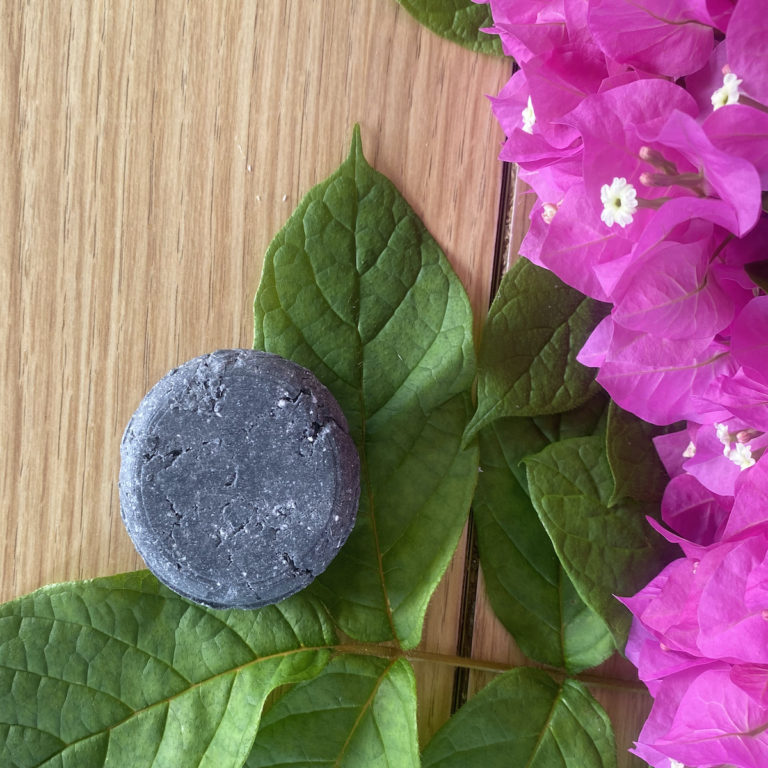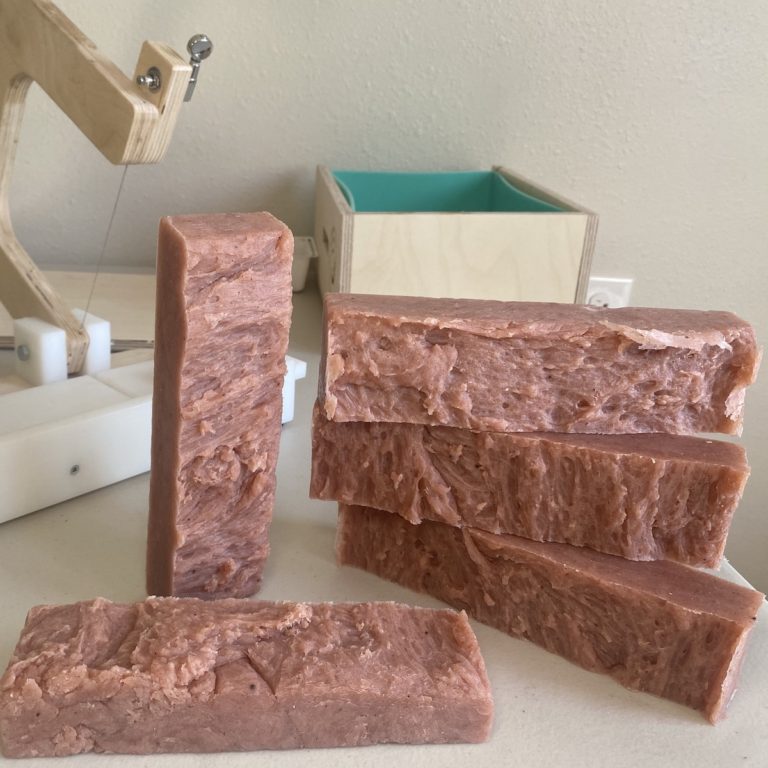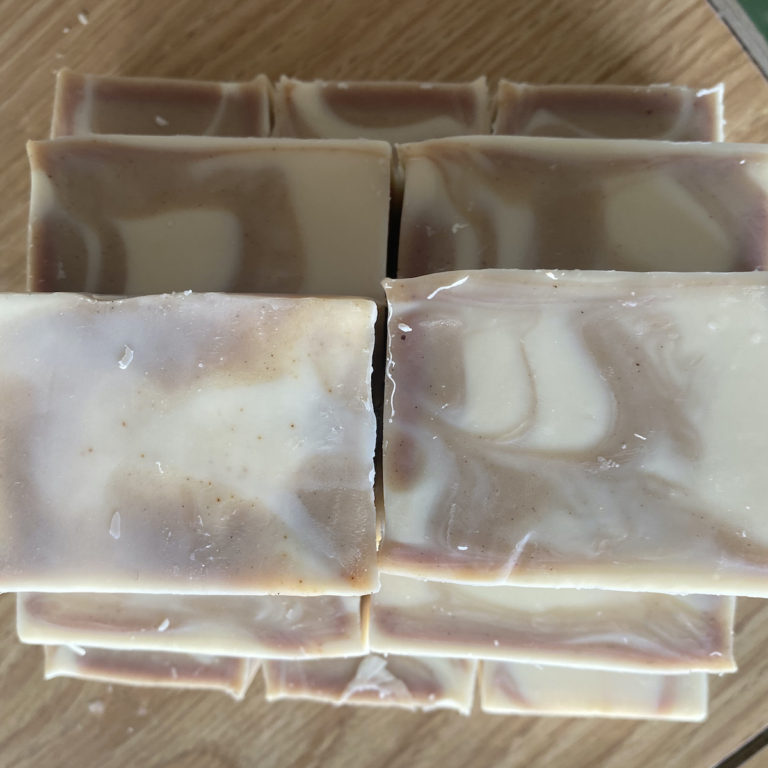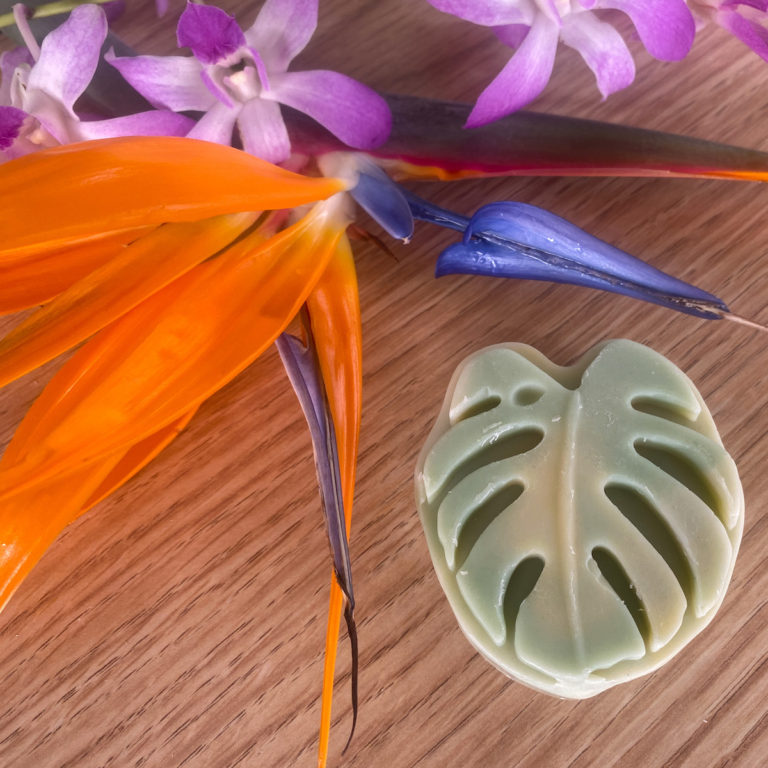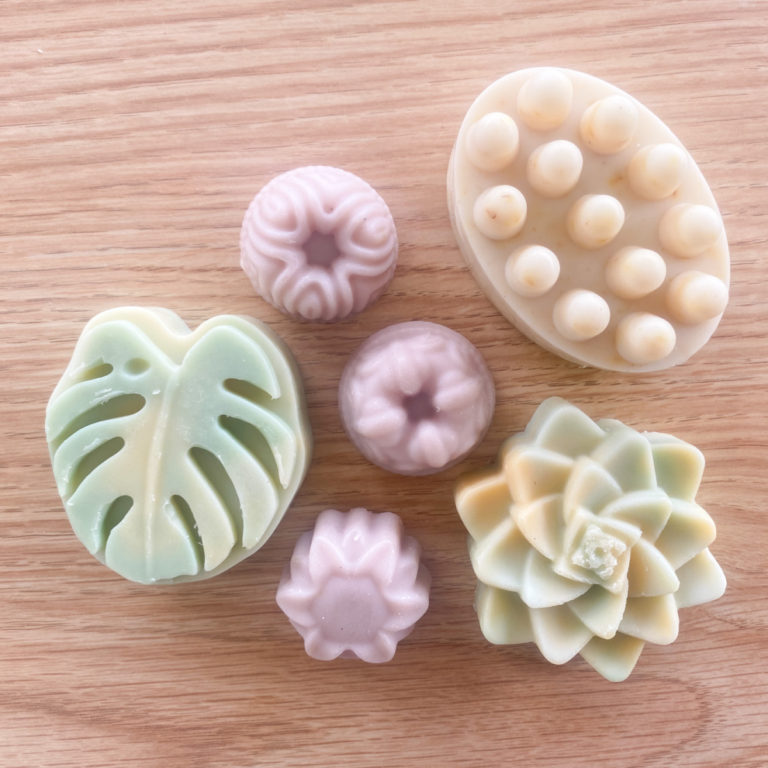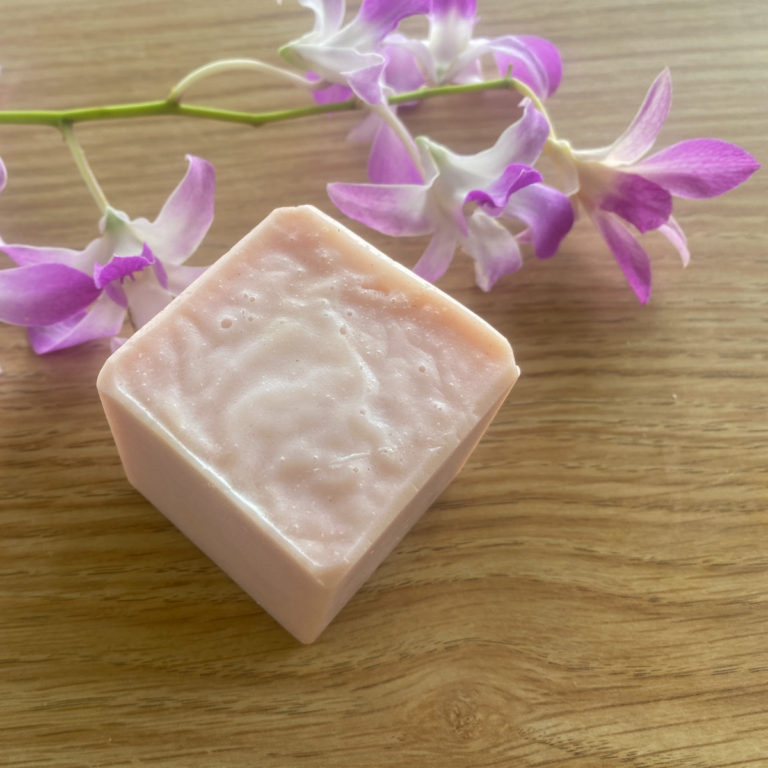Do Homemade Soaps Go Bad? The Truth Revealed
If you have left your soap sitting unused for several years, it may have lost its fragrance or gone rancid. However, since soap has a high pH, it cannot grow mold or other fungi. So, is it possible for homemade soaps to go bad?
Homemade soaps do go bad. Over time, homemade soaps can lose fragrance or become rancid, although they are still effective. Old, unused soaps may smell less fragrant, and they may not lather as nicely as they once did, but they still function well as soap.
There are two main factors in determining the expiration date of soap: the shelf life of the fragrances and the shelf life of the oils in your soap. If you want to learn more about homemade soaps and their expiration, keep reading.
How Soap Expires
According to the FDA, soap makers must label all marketed soaps and cosmetics with an expiration date. This expiration date is determined by the soap ingredients, although, just like any food product, the soap may last longer than labeled.
If you suspect that your soap may have expired, either your soap’s fragrance may have evaporated, or the oil may have become rancid.
No Fragrance
If you have left your soap sitting around for more than a year, it may have lost its fragrance. If your soap has lost its scent, it will still clean as effectively as it ever did, but the smell may not be as pleasant.
Fragrances such as herbs and essential oils do not last as long as soap does. If you have left your soap sitting on the shelf for over a year, the fragrant oils that once made your soap smell like a fresh french garden may have evaporated, leaving just the basic ingredients of your soap.
If your soap contains whole herbs such as sprigs of lavender or rosemary, it is more likely to go rancid. Organic materials such as herbs will dry out over time and potentially decay. The chemistry of your soap will keep these herbs from growing fungus, although they will still deteriorate and lose fragrance over time.
If the fragrance of your soap is gone, your soap is still usable and effective as soap. If you continue to use your soap, you may find that the fragrance increases as you use it. If the fragrance’s concentration increases as you use it, then the fragrant oils at the soap’s center have not yet escaped.
Rancid Oil
If your soap smells pungent, the oil base of your soap may have gone rancid. Rancid soap smells musty or similar to wine. Soap typically becomes rancid after the fragrance of your soap has evaporated. When you are using a rancid soap, the lather will be thicker and less bubbly. In addition, the smell will likely be noticeably pungent.
The high pH of soap prevents mold from growing on it, but the oil can go rancid over time if you leave it exposed to oxygen for too long. You may see orange spots on your soap, which indicate that the oil has gone rancid. If your soap does not smell foul but still has these orange spots, then you can still use your soap safely.
If your soap does smell bad, then you may want to stop using it. Rancid oil contains carcinogens, which are cancer-causing agents. These carcinogens are harmful when ingested, and they can soak into your skin if you use rancid soap over a long period of time. A sour soap is not immediately harmful to your health, but it can contribute to skin cancer over time.
Ultimately, if your soap smells fine, then you can keep using it. As a soap becomes rancid, it will develop orange spots. Rancid oil has a distinct smell, so if your soap starts to smell musty and spoiled, then replace it. If you ever suspect that your soap has gone rancid, give it a good whiff, and you will immediately know.
How Long Does Soap Stay Fresh?
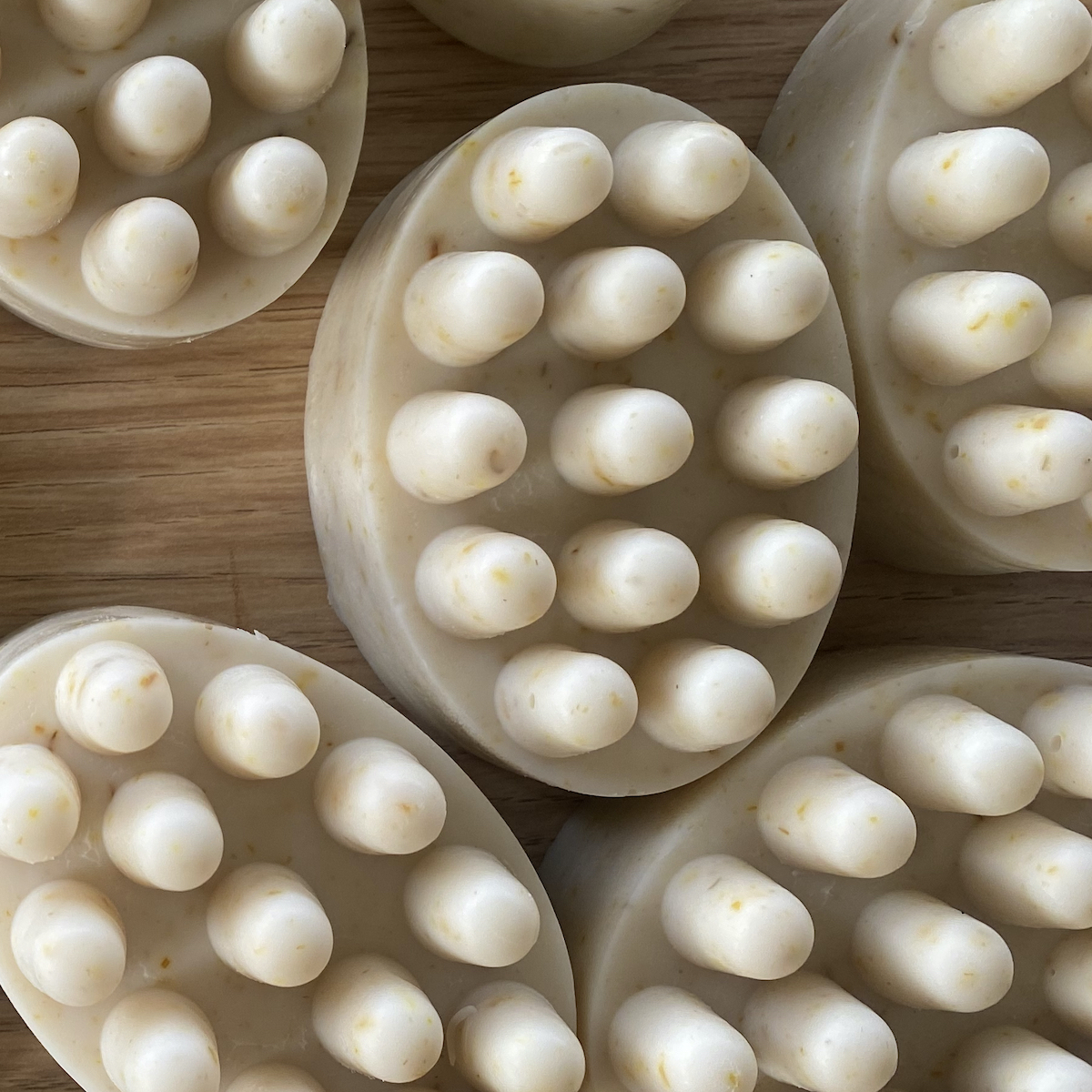
The shelf life of the oils that make up your soap will determine its shelf life. These oils often last a year or more, but certain conditions can speed up the rate that they go rancid. When storing soaps, make sure that you place your unused soaps in a cool, dry place in an airtight container. Careful storage will help keep the oils from evaporating, preventing the oils from going rancid.
Soaps will only stay fresh as long as their ingredient with the shortest shelf life lasts. Generally, polyunsaturated oils such as canola oil, hazelnut oil, and corn oil do not last very long. Here is a guide to help you determine the shelf life of your soaps, based on the oils that they contain:
| Beeswax | 3 Years |
| Canola Oil | 1 Year |
| Castor Oil | 2 Years |
| Coconut Oil | 18 Months |
| Corn Oil | 1 Year |
| Grapeseed Oil | 3 Months |
| Hazelnut Oil | 3 Months |
| Hemp Seed Oil | 3 Months |
| Jojoba Oil | 2 Years |
| Olive Oil | 2 Years |
| Palm Oil and Palm Kernel Oil | 1 Year |
| Shea Butter | 2 Years |
| Sunflower Oil | 6 Months |
Some soapmakers use antioxidants such as vitamin E oil to preserve their soaps and increase their products’ shelf life. Overall, this method is effective, although its effectiveness depends on the other ingredients used in the soap. Generally, antioxidants will increase the shelf life of soaps by about three months.
How to Maximize the Shelf Life of Your Soap
By FDA regulations, soapmakers must label their soaps with an expiry date. However, your soap may last longer or less long, depending on the conditions in which you store it. If you want your soap to keep for a more extended period of time, there are several precautions that you can take to make your soap last longer:
- Store your soap in an airtight container. Oil goes rancid when it is exposed to oxygen.
- Store your soap away from exposure to sunlight. Storing your soaps in a dark place will help to trap the fragrances within your soap.
- Keep your soap in cool conditions. Warmer conditions will accelerate the rate at which your soap can become rancid.
- Keep your soap as dry as possible. Moisture allows the fragrances to escape from your soap at a higher rate.
- Use it all after opening the original packaging. Once you open your soap’s packaging, use it all before opening another.
- Use natural or handmade soaps before using commercial soaps. Organic or natural soaps will likely expire before commercially sold soaps. Use natural soaps first to avoid expiration.
Even if your soap is rancid, you can use it to wash things other than your hands. You can use rancid soap to wash your car, your bathroom, and other household items. Even though the oil in the soap is rancid, it will still clean things as effectively as it ever did.
Conclusion
All soap has an expiration date, although soap can expire in two different ways. If your soap has lost its fragrance, it’s still safe to use. However, if the oils in your soap have gone rancid, you will need to stop using it on your skin.
If you think your soap may have expired, you should smell it. If it doesn’t smell foul, then you can continue using it on your skin. If your soap has a wine-like or sour smell, then you may want to use the soap for cleaning other things, such as your bathroom or your car.

